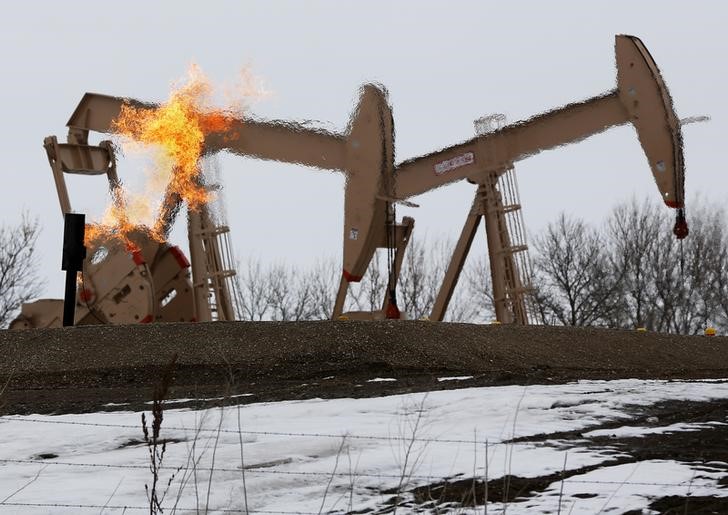By Gina Lee
Investing.com – Oil was up Tuesday morning in Asia, after an unexpected cold snap impacted production in Texas, the biggest crude producing state in the biggest oil producer globally. Concerns also remain about supply in Saudi Arabia, the world’s biggest oil exporter, after Yemen’s Iran-aligned Houthi group said it struck airports in the country with drones. All this, in addition to accelerated COVID-19 vaccine rollouts leading to increased hopes for economic recovery and improved fuel demand, gave the black liquid a boost.
Brent oil futures rose 0.58% to $63.67 by 10:57 PM ET (3:57 AM GMT) and WTI futures jumped 1.43% to $60.32. Both Brent and WTI futures remained above the $60 mark, with WTI futures prices due to settle later in the day due to Monday’s holiday in the U.S.
The cold snap in the U.S. halted oil wells and refineries, with natural gas and crude pipeline operators also facing restrictions.
“The unexpected U.S. supply disruption provides another short-term price recovery bridge that has likely taken oil prices to a level where markets were eventually heading but just a little bit quicker than expected,” Axi chief global markets strategist Stephen Innes said in a note.
The rare bout of cold weather also crippled Texas’ power system and saw 13 states impose rotating blackouts. Texas produces roughly 4.6 million barrels of oil daily, and houses 31 refineries, the most of any U.S. state and including some of the largest in the country, according to U.S. Energy Information Administration data.
In the Middle East, Houthi group said that it had struck Abha and Jeddah airports in Saudi Arabia with drones. A Saudi-led coalition fighting against the Iran-aligned group said on Monday that it intercepted and destroyed an explosive-laden drone fired by the Houthis toward Saudi Arabia.
Meanwhile, the World Health Organization on Monday approved the COVID-19 vaccine developed by AstraZeneca PLC (LON:AZN) and Oxford University for emergency use. The approval is expected to widen access to the vaccine, which is already relatively inexpensive, in the developing world.
